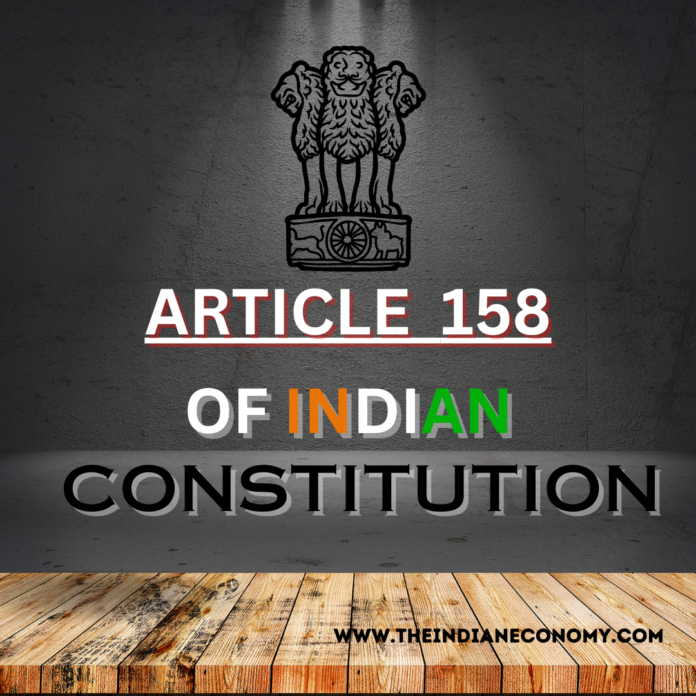Article 158 of the Indian Constitution stands as a sentinel guarding the parameters and expectations that define the office of a Governor. By outlining these conditions, the Constitution establishes a robust structure that governs the conduct, tenure, and qualifications of Governors, ensuring that their roles as constitutional heads of states are executed with the highest standards of integrity and accountability.
What does Article 158 states ?
Conditions of Governor office
(1) The Governor shall not be a member of either House of Parliament or of a House of the Legislature of any State specified in the First Schedule, and if a member of either House of Parliament or of a House of the Legislature of any such State be appointed Governor, he shall be deemed to have vacated his seat in that House on the date on which he enters upon his office as Governor
(2) The Governor shall not hold any other office of profit
(3) The Governor shall be entitled without payment of rent to the use of his official residences and shall be also entitled to such emoluments, allowances and privileges as may be determined by Parliament by law and, until provision in that behalf is so made, such emoluments, allowances and privileges as are specified in Second Schedule
(3A) Where the same person is appointed as Governor of two or more States, the emoluments and allowances payable to the Governor shall be allocated among the States in such proportion as the President may by order determine
(4) The emoluments and allowances of the Governor shall not be diminished during his term of office
Conditions for Governor’s office
- He is ineligible to have membership in both the Lok Sabha and Rajya Sabha. If the individual in question has had membership in either chamber of the legislative body, it is expected that they will relinquish their position upon assuming the role of Governor on their inaugural day in office.
- It is imperative that he abstains from assuming any position that yields financial gain.
- Raj Bhavan is allocated to him as his place of abode, exempt from any rental fees.
- The determination of his emoluments, allowances, and privileges is vested in Parliament.
- In instances where a governor holds responsibility for multiple states, the emoluments and allowances allocated to the governor are divided among the states in a manner determined by the President.
- During the time of office, it is not within the power of Parliament to reduce the emoluments and allowances of the individual in question.
- He is granted immunity from all criminal prosecutions, even those pertaining to his own actions.
- The arrest or incarceration of the Governor is not permissible. Civil procedures can only be commenced for his individual actions, and this can only occur after a two-month advance notice has been provided.
